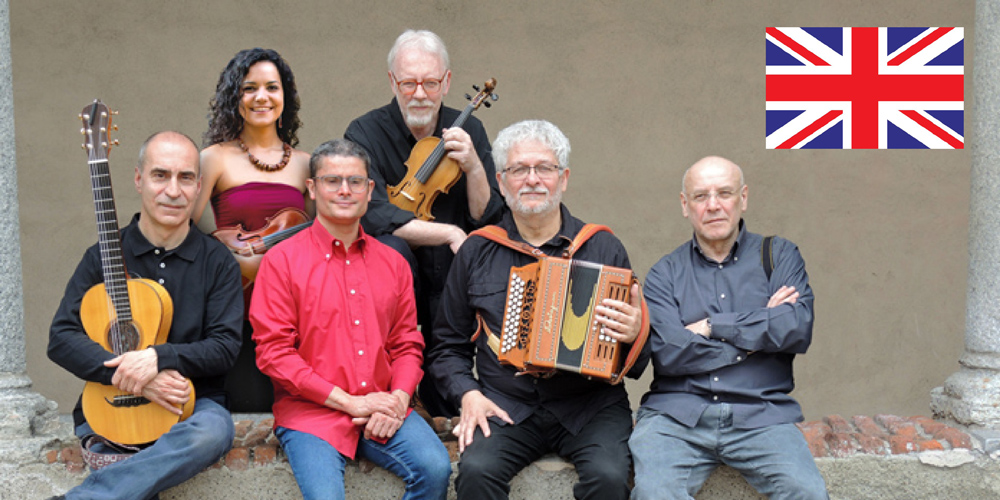
Northern Italy traditional music
Barabàn, one of the top bands on the Italian folk music scene, appreciated in Europe and America, has developed a path that revisits the musical tradition of northern Italy with a contemporary language and sensitivity. In 40 years of activity the group has held concerts in London, Montreal, Moscow, Brussels, Helsinky, Manchester, Nuremberg, Rome, Milan, Turin, Barcelona, Genoa, Bern, Oporto, Nancy, Zűrich, Innsbruck, York, Beverly, Venice, Bridport, Montpellier, Groningen, Bologna, Montpellier, Liubersky, Klin and in hundreds of other large and small locations all over Europe.
Founded in Milan in 1982 by Vincenzo Caglioti, Aurelio Citelli, Giuliano Grasso and Guido Montaldo – among the most active Italian researchers and musicians – the ensemble mixes melodies, languages, rhythms and sounds of northern Italy, popular and contemporary instruments, polyphonies of the Po Valley, music related to Italian emigration to the Americas, contemporary lyrics, archaic songs from the Apennines, swing music and Yiddish flavor.
Careful collectors, Barabàn’s musicians have developed an original musical synthesis between traditional models and contemporary taste. The search for a balance between memory, languages and themes of the present continues. Always attentive to social and civil issues, more recently Barabàn has dedicated himself to the interpretation of songs composed by descendants of Italian immigrants in South America and to the creation of a new music by experimenting with the encounter between the lyrics of contemporary writers (Loi, Biamonti ) and their own compositions in which the styles and sounds of traditional music open to multiethnic contamination.
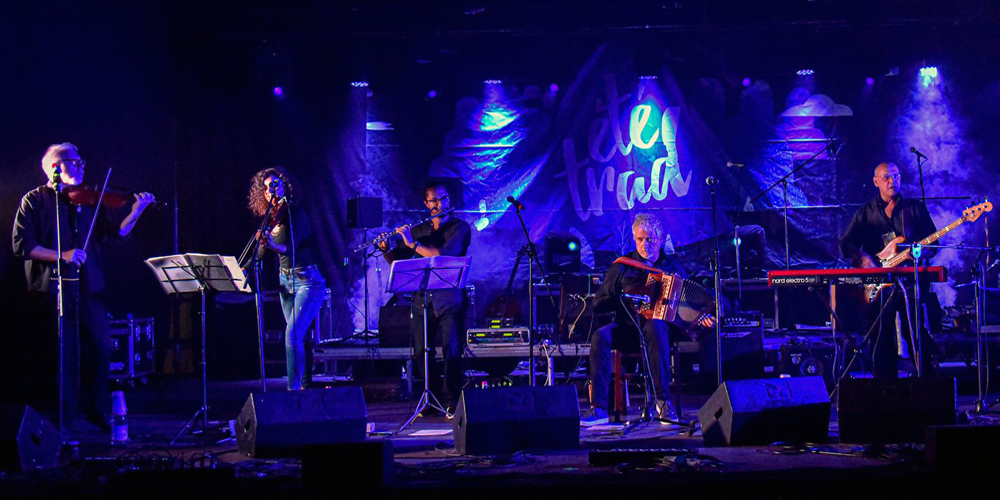
Barabàn’s name
Derived from the Aramaic Bar abā, (son of the teacher), Barabàn is a term common to many languages of Indo-European origin. An onomatopoeic word (in Slavic countries it means drum), in northern Italy it takes on different meanings: Barabbas, old man, brat (barabìn), subversive, rebellious, vagabond. Name of a famous popular melody of the sixteenth century (La Mantovana or Aria di Mantova) of probable Jewish origin, it has become very famous in Europe both in cultured music (from Barabàn derives the symphonic poem La Moldava by Smetana which seems to have known the Swedish version entitled Ack, Värmeland) and in the popular one, such as in the repertoire of the violinists of the Emilian Apennines and in Israel (Hatikvah).
Concerts, album, radio and television broadcasts
Since his debut Barabàn has given more than 1500 concerts in Italy, United Kingdom, Canada, Russian Federation, France, Finland, Spain, Germany, Portugal, Austria, Slovenia, Holland, Belgium and Switzerland. The group has released eight albums and one DVD. Many tunes appear in compilations published in Italy, Germany, Great Britain, France and Switzerland.
The ensemble has been a guest on radio and television broadcasts in Europe, America and Oceania for RAI, BBC, RTO Radiotelevidenie Ostankino, Radio Melbourne, Goestele Radio, RTSI, ORF, RSR, Radio Canada, DRS, BRTN – De Nederlandése Radio, Antenne 2, Radio Popolare Milano, Tele Koper, Slovenian Television.
Tour and festival
Barabàn has performed at countless festivals: Folkest ’84, Tour in Switzerland ’85, 4° Barnbacher Folkfestival (A), Tour in United Kingdom ’89, Sidmouth International Festival (GB), Tour in Russia ’90 (Urss), Bridport Folk Festival (GB), Tour in Quebec ’90 (CAN), Tour in United Kingdom ’90, Tour in Belgium ’92, 4° Festival Interceltico di Porto (P), Faenza Folk Festival (I), Hallein Folk Festival (A), Folkest ’94 (A e SLO), Tour in Germany ’94, Tour in France ’95, Mediterranea ’95 (I), Canti randagi (I), 9è Tradicionàrius (E), Festival di Villa Arconati ’96 (I), 13° Folkermesse (I), Reincontres Internationales de Saint-Chartier ’96 (F), Romaeuropa Festival ’96 (I), Sete Sòis, Sete Luas ’96 (P), Santarcangelo dei Teatri ’98, Isola Folk ’98 (I), Etnosoi ! Festival ’98 (FIN), GardaDanza ’99 (I), Dolcenera – Concerto per Fabrizio De André (I), Folkest ’99, Suoni nel mondo (I), San Salvatore Folk Festival (CH), Le Vie dei Canti 2001 (I), Etetrad 2001 (I), Musica delle radici 2002 (I), Isola Folk 2003 (I), Concerto al Mazda Palace – Milano 2003 (I), Cantavalli 2004 (I), Appennino Folk Festival 2004 (I), Folkermesse 2004 (I), Ande, bali e canti – 2005 (I), Forti in scena 2005 (I), Canti randagi – Vinadio 2005 (I), Gong 2005 – Torino (I), Le vie dei canti 2006 (I),Trad.it ! 2006 (NL), Forti in scena 2007 (I), Le vie della musica 2007 (I), 25° Cantamaggio – Morro d’Alba (I), Forti in scena 2008 (I), Appennino Folk Festival (2008), ValTrompiaMusicArt 2008 (I), Zona libera. Eventi resistenti 2008 (I), La Grande Guerra – Milano (2008), Chantar l’uvern (2008), Italian Christmas Festival – Moscow 2009 (RUS), Etètrad 2009 (I), Negro Festival 2009 (I), Isolafolk 2009 (I), Tre giorni di musica popolare ad Acquarossa 2009 (CH), Canti randagi 2 2009 (I), Teatri in scena 2011 (I), Le Regioni dei Suoni 2011 (I), Altisonanze 2011 (I), Suoni e Voci d’Italia 2011 (I), Fai il pieno di cultura 2011 (I), I cerchi del legno 2011 (I), Voces 2012 (I), Trentino Girofolk 2013 (I), Sestriere Film Festival 2013 (I), Suisse Mountain Festival 2013 (CH), Le scenès du Chapiteau (CH), Etètrad ’13 (I), 8° Festival LetterAltura 2014 (I), War and Peace: 39th Bardentreffen Festival in Nürnberg (D) 2014, Folkest 2015, Artinscena 2015 (I), Forti in scena 2015 (I), Folkermesse 2015 (I), Tracce nel Tempo 2016 (I), Voces 2016 (I), Sentinelle di pietra 2017 (I), Alpentöne International Festival 2017 (CH), Folk in Tour 2017 (I), Effetto Musica (2018), Alpi Sonanti (2018), XV° Musica al Lavoro (2019), Etètrad 2019 (I), Voci della Memoria – Fondazione Corriere della sera (2020), Folkest 2020, Musica al Lavoro (2022), Rassegna Vocate 2023 (I), Attraverso la memoria 2023 (I).
Line up
Vincenzo Caglioti: diatonic accordeons, bandoneon, voice
Aurelio Citelli: vocals, keyboards, hurdy-gurdy, bouzouky
Giuliano Grasso: violin, viola, voice
Antonio Neglia: guitar, bandurria, mandoloncello, mandolin, voice
Alberto Rovelli: double bass, voice
Maddalena Soler: vocals, violin
feauring
Daniele Bìcego: musette, uillean pipe, flute, voice
Francesco Grasso: violin, keyboards, voice
Over the years, the following have also participated in Barabàn’s concert and recording activity: Mouna Amari, Daniele Bìcego, Jacopo Soler, Saul Casalone, Gabriele Coltri, Francesco Grasso, Alessandro Magistrelli, Guido Montaldo, Andrea Ferraresi, Donata Pinti, Diego Ronzio, Paolo Ronzio, Placida Staro, Giulio Venier, Silvia Zambrini, Luigi Zucca and the sound engineers Roberto Foini e Arcangelo Monetti.
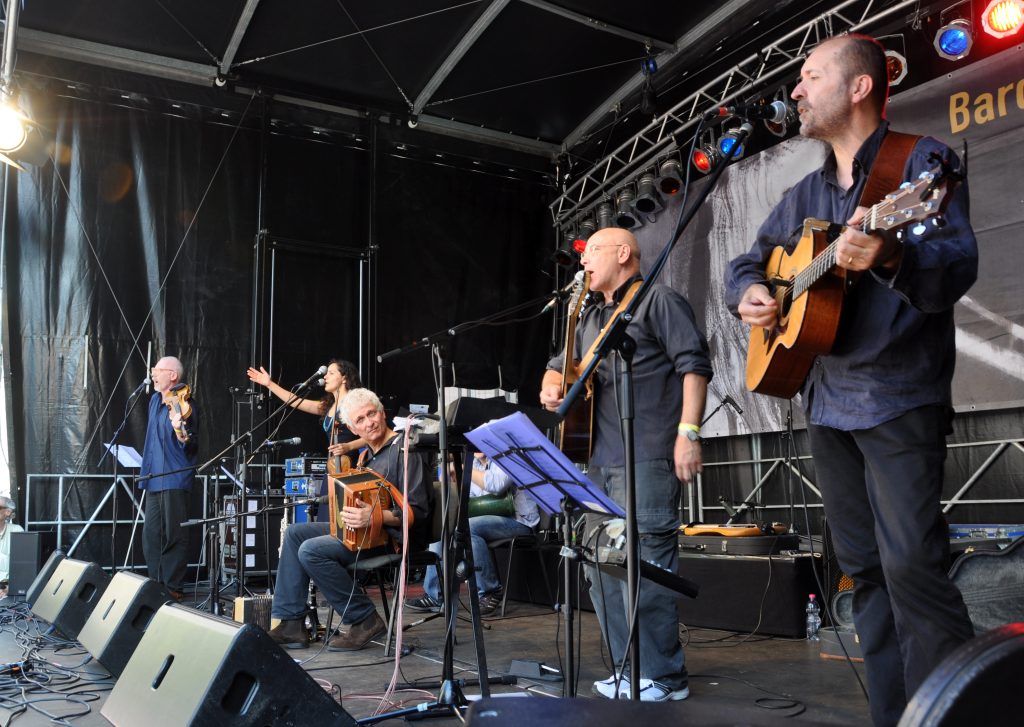
Discography
- Il violino di Auschwitz (2024)
- Voci di trincea (2015)
- Venti5 d’Aprile (DVD, 2005)
- Terre di passo (2002)
- La Santa Notte dell’Oriente (1996)
- Live (1994)
- Naquane (1990)
- Il valzer dei disertori (1987)
- Musa di pelle, pinfio di legno nero… (1984)
Compilation
- Bardentreffen 2014 (Heartmoon Records, 2014) – Germany
- Canti randagi 2. Canzoni di Fabrizio De André (Cose di Musica, 2010)
- In Terra Zapatista (Radio Onda d’Urto, 2007)
- Think global world Christmas (World Music Network, 2007) – United Kingdom
- Tribù italiche: Lombardia (EDT, 2006)
- Atlante di musica tradizionale. Italia 3 (Felmay, 2004)
- Folk geneticamente modificato (Nuovi Equilibri, 2003)
- A Musical Journey to Italy (WeltWunder Record, 2000) – Germany
- Italy. Music Rough Guide (World Music Network, 2000) – United Kingdom
- L’orizzonte e la memoria. Musiche da Santarcangelo dei Teatri (1999)
- Choeurs des cinq continents. Le chant des peuples (Wagram Music, 1998) – France
- Atlante di musica tradizionale. Italia 2 (Robi Droli, 1997)
- World Christmas (AVC, 1997) – Switzerland
- Italia mia. Tutte le più belle canzoni del mondo (Selezione RD, 1997)
- Canti randagi 1. Canzoni di Fabrizio De André (Ricordi, 1995)
- Atlante di musica tradizionale (New Tone/CGD, 1995)
- Canzoni italiane. Vita in campagna (Fabbri Editore, 1994)
- Canzoni italiane. I cantastorie (Fabbri Editore, 1994)
- Canzoni italiane. Canzoni all’osteria (Fabbri Editore, 1994)
- Canzoni italiane. I canti della grande guerra (Fabbri Editore, 1994)
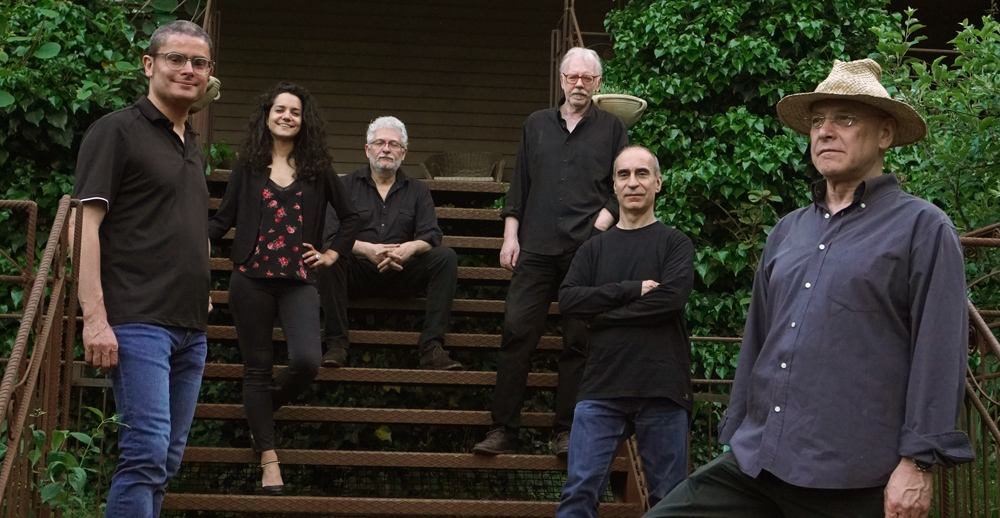
Reviews
“…a beautiful concert … in the hands of Barabàn, Italian popular music has reached levels of the highest quality.” (Helsingin Sanomat, Finland, 1998)
“The Interceltic Festival ended in style with Chieftains and Barabàn.” (Jornal de Noticias, Portugal, 1993)
“Barabàn were excellent. First-rate performers, they start from a very deep research work … They have been the great revelation of the 4th Interceltic Folk Festival.” (Pùblico, Portugal 1993)
“…it only takes a few minutes of Barabàn to understand why a group like this can make a splash in the folk festivals of Europe. With an impact that many rock bands envy, Barabàn are a real assault department of Italian neo-traditional music…” (il manifesto, 1995)
“The performance of Barabàn was of an excellent level: the interplay between members was perfect, the sequence of the songs was well studied …. Thunderous applause accompanied the entire concert…” (L’Adige, 1991)
“…unanimously considered one of the most qualified Italian popular music bands, Barabàn are not a matter of tired repetition but of creative recovery: thus, sax and keyboards appear alongside beautiful folk instruments and virtuosic jazz improvisations alongside peasant songs…” (il Giornale, 2006)
“…one of the best acoustic groups in our country…” (La Stampa, 2005)
“Historical name in the panorama of folk music, Barabàn are considered among the most authoritative exponents of Italian popular music”. (Il Giorno, 2004)
“Barabàn are the spearhead of Italian popular music”. (Giornale di Brescia, 2003)
“…among the most esteemed witnesses of folk and popular heritage.” (la Repubblica,1996)
“The quality of the musical proposal is guaranteed by the professionalism of the members, artists active across the board on the Italian folk scene” (L’eco del Chisone, 2004)
“…one of the best Italian popular music bands. In almost twenty years of activity they have managed to gain extraordinary credit among folk music fans…” (La Provincia, 2000)
“Theirs is an avant-garde newfolk, an original synthesis of tradition, current events and the future … a very modern sound that has opened them the doors of the most important Italian and European folk festivals.” (Ticino 7, Svizzera, 2000)
“Great enthusiasm aroused the tour of the Italian group Barabàn.” (Sovietskaja Rossja, Russia, 1990)
“Whether they sing i giorni della merla (the days of the blackbird) or the protest against the first world war, the grit they show live can be the envy of a rock group.” (il manifesto, 1995)
“With a musical career that has passed through more than a thousand concerts on the stages of half-European festivals, Barabàn has contributed to enhancing the great musical tradition of northern Italy.” (Il Giorno, 1998)
“…an original concert, a group of international importance” (Repubblicain Lorrain, Francia, 1995)
“The Barabàn concert was a great musical event … Excellent musicians and excellent singers, very good in a cappella singing, Barabàn manage to blend past and present in an innovative way. Thunderous applause accompanied the entire concert…” (Gazzetta di Mantova, 1995)
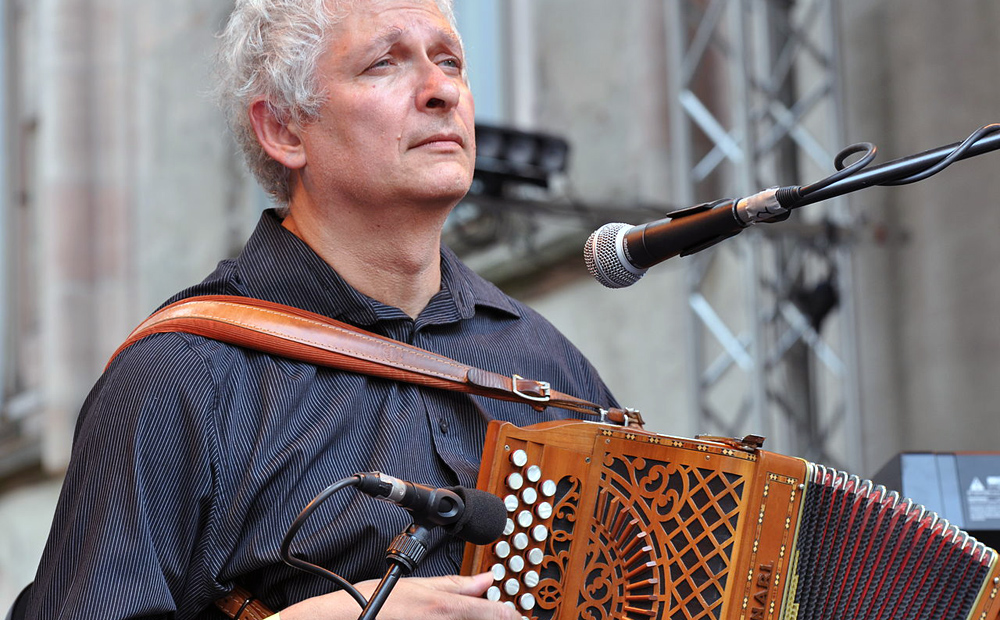
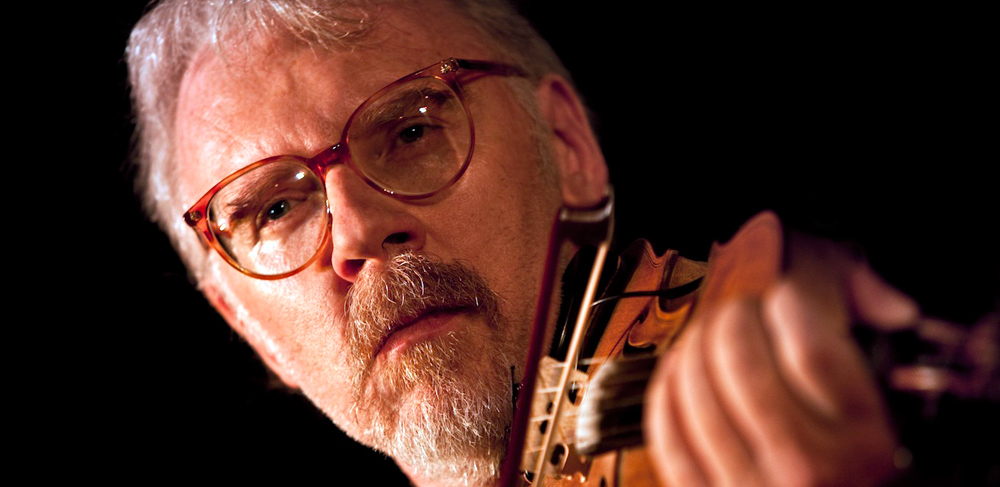
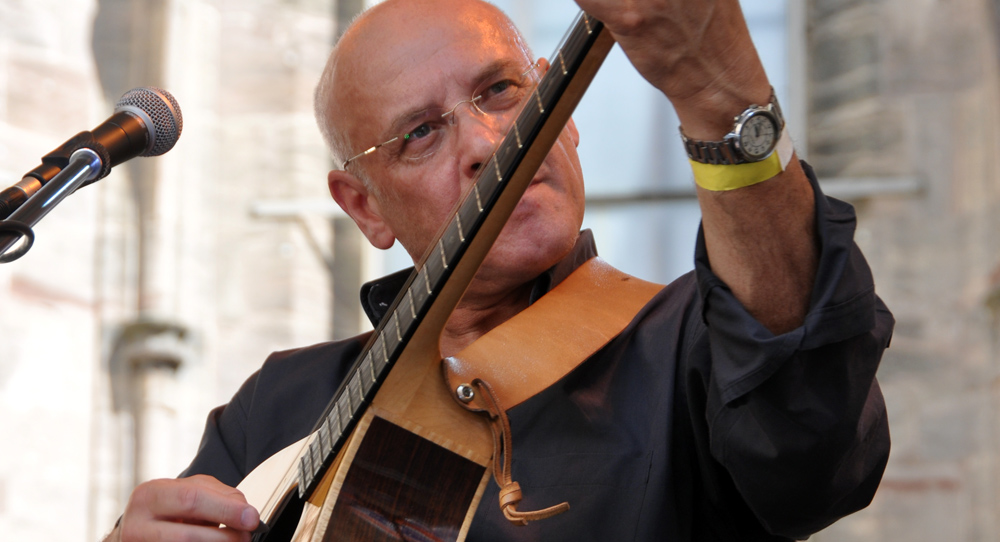
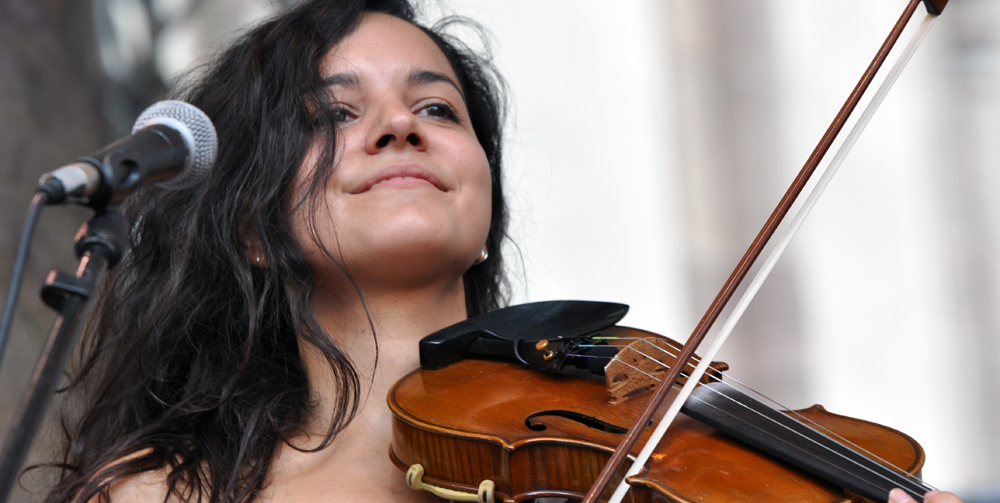
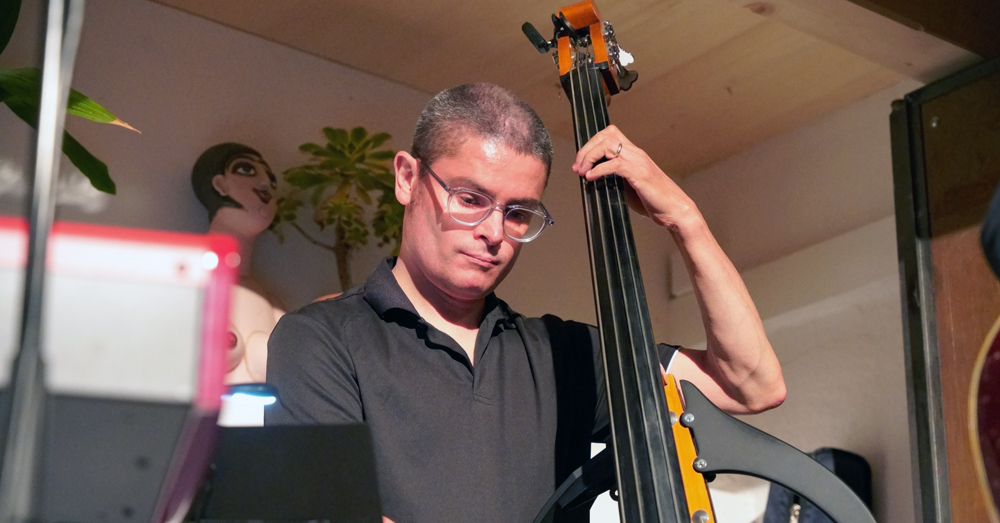
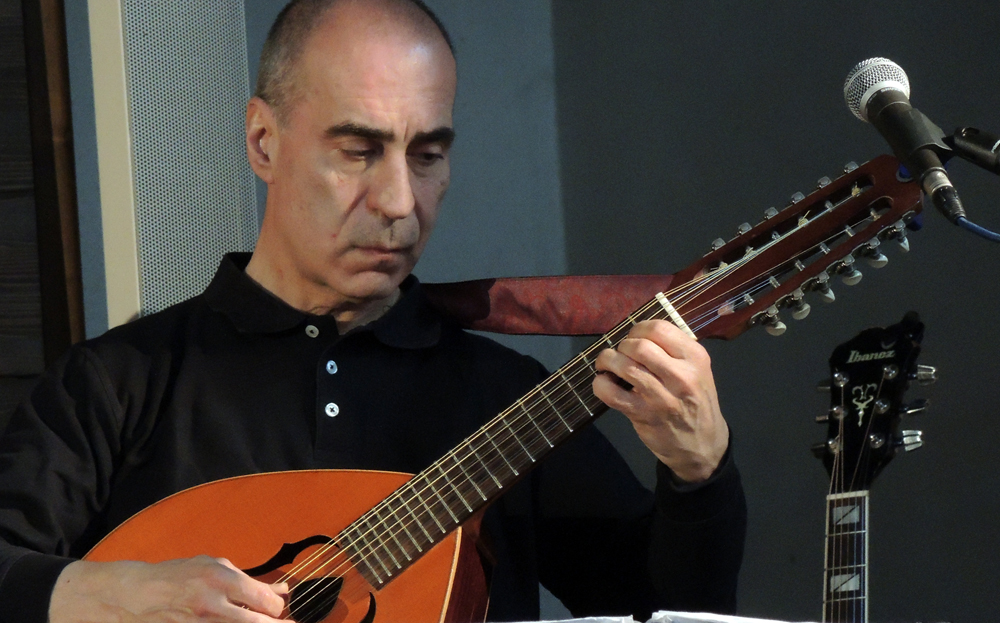
Info
info@baraban.it
tel. +39 338 7189841
tel. +39 339 3271747 (estero)